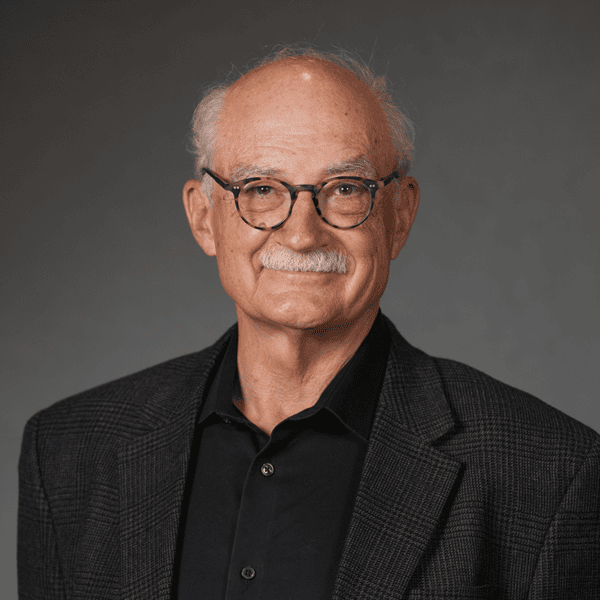In 2009, before Vladimir Putin had solidified his dictatorship, when hopes for a democratic alternative to the Soviet system were still alive, the driver of our rickety bus struggled in the dark to navigate around the potholes in the main road between Saint Petersburg and Novgorod. I, and the rest of the busload of scholars, had been attending a conference on the historical models of republicanism at the European University at Saint Petersburg (EUSP); we were on a field trip to Novgorod, which had been a thriving medieval republic until Ivan III snuffed out its independence in 1478. Novgorod represented a historical path to republicanism not taken for Russia, but Ivan had destroyed its library and archives; little of its local republican institutions and democratic practices is preserved. A small group of Western scholars came to the conference to offer models of republicanism, all as a way of helping the future leaders plan a better, more representative political system for Russia. As a historian of medieval and Renaissance Italy, I found my own participation decidedly odd, because whatever the successes and failures of the medieval Italian republics, ripping their political institutions (pace Machiavelli) out of their historical and cultural context did not make much sense to me, but I got a gratis trip to Russia out of it.
I sat at the back of the bus with the best and brightest of Russia’s post-Soviet social science graduate students. The male graduate students had conventional projects, so conventional that I have forgotten what they were, but a female sociologist from Irkutsk had an inspired idea of studying how the apartment dwellers in Saint Petersburg were adapting to the post-Soviet management of their huge concrete “commie blocks,” mostly built after the German siege of the city during World War II. The sociology student wanted to investigate alternatives to the old Soviet culture in which building superintendents had autocratic power over the inhabitants, the ability to skim off for themselves as much extra income possible, to use bribes and sexual coercion to fix broken pipes in apartments, and, in short, to emulate on a microscale the macrostructures of the Soviet/Russian system.
The sociologist asked me how collective properties were managed in the United States. At the time, I was on the board of my condominium association in liberal Evanston, Illinois, and I had a ready answer: we elected board members every year, had a clear legal charter of responsibilities, and delegated day-to-day maintenance to a management company. We had a board chair, who was a property owner in the condominium, represented us to outside authorities, and conducted meetings that followed Robert’s Rules of Order. In the West, too, the macropolitics of the state and the micropolitics of small groups from elementary school classrooms to town hall meetings tend to mirror each other. The sociologist was stunned. Everyone accepted the rules of the game? You could depose through a simple vote a board chair who has abused his position by building a private storeroom in the collective space?
What we think does not matter because only a few people will decide.
In the safe quiet of the back of the bus, I enjoyed this and other lively conversations with the graduate students. Eventually, I asked what they thought Russia would be like in 10 years. It was a question I could certainly imagine asking students in the United States or Western Europe, especially in the context of the possibilities for political renewal. There was an embarrassed pause. Finally, one student said, “What we think does not matter because only a few people will decide.” That, of course, is what happened, and their lack of hope has haunted me ever since.
As that conference showed, the end of the Cold War offered heady, invigorating times for historians to enter the public arena in discussions about possible futures. During that period, the Renaissance Italian republics became yet again food for thought as they had for the antimonarchists in England during the Commonwealth, the founding fathers in America, and the German émigré scholars and their American students after World War II. During the 1990s and early 2000s, I found myself invited not just to Russia but to Poland, Slovenia, and South Africa to talk about Renaissance Italian models for vigorous independent communities.
Of all those trips, my discussions in South Africa in 1999 during the bright moments of Nelson Mandela’s presidency revealed hope about the future that was missing in what would become Putin’s Russia. Perhaps that hope was misplaced, but it was an inspiration to witness an imagined future shared by Blacks and whites that citizens freed from tyranny could make a fractured society whole. I even saw it at Rand Afrikaans University, once the fortress of apartheid, which had now abolished the Afrikaans language and literature department and welcomed Black students in large numbers. The young Black and white teachers at Vista University in Soweto showed an enthusiasm for building their country anew that seemed universal—but of course it was not. Counterrevolutionary forces still lurked behind the public institutions, crime was rampant, and racial equality was a fleeting goal. While I was in Soweto, my hosts asked me to talk about Renaissance community building, but once there, I threw away my prepared paper to learn from the audience. Mandela’s home township, Soweto now has well over a million residents, but when I was there, no one really knew how many. Squatter shacks blanketed the hillsides, and even though the faculty members at Vista most interested in building community institutions were from the English department, they recognized that the first task was the basic work of history and sociology: determine who was living in Soweto, what languages they spoke, where they came from, what skills they possessed, and their histories. Despite overwhelming challenges, the belief that the community could be made whole was universal. But my hosts did not need a historian to do that work. Hope could do it.
Despite overwhelming challenges, the belief that the community could be made whole was universal.
Historians have a long-standing engagement in the public discourse, political engagement, and futurology, but we have never been very good at that last task. Machiavelli, who was deeply engaged in historical studies, advised the Florentine republic about reorganizing its militia along classical lines, but his efforts were a dismal failure. One of the early Johns Hopkins PhDs in history, Charles Homer Haskins taught at the University of Wisconsin and Harvard University and advised Woodrow Wilson on European matters for the Treaty of Versailles. I have often wondered whether he had been so enchanted with the medieval Serbian epics about the Battle of Kosovo in 1389 that he advocated that the borders of the new Kingdom of Serbs, Croats, and Slovenes include Kosovo in Serbia, thereby blocking its majority Albanian population from joining their ethnic and religious fellows in neighboring Albania. That great historian’s venture into futurology may have cost tens of thousands of lives over the past century. Wilson, himself a PhD historian who taught at Bryn Mawr College and Princeton University, and became president of Princeton, the United States, and the AHA, had the opportunity at the Paris Peace Conference to fashion the future more directly than possibly any historian before or since. One wonders if all that learning and practical experience really helped. The past century would suggest not.
Putin’s appalling invasion of Ukraine brought that conversation in the bus back to me and left me to wonder where those students are today. Had the EUSP managed to stem the brain drain from Russia? Not likely. For some years, Putin’s henchmen harassed the EUSP with phony fire safety violations and even closed it down for six weeks in 2008. But that conference, and the question of how to rehabilitate Russia, now seems even more vital, more necessary to world peace, than it did in the decades after the fall of the Soviet Union, when we could naively imagine that rational discourse about democracy could erase the brutal history of autocratic violence. The annus horribilis in Ukraine and the fate of those EUSP students raise the question yet again about what role historians should and could have in constructing future democratic political institutions. It is impossible to think about the future without thinking about the past—but what past? What context? What questions?
The problem for most historians is that we tend to work in the ironic mode. Things never quite work out the way they were planned, a reality that often makes it hard to be hopeful. Unlike economists, whose job is to predict the future for governments and businesses, historians evaluate the past for our students and our readers. Without resorting to an unsustainable teleology of progress, however, we need to avoid easy cynicism and listen to our students, who always seem to have hope for a more just future.
This work is licensed under a Creative Commons Attribution-NonCommercial-NoDerivatives 4.0 International License. Attribution must provide author name, article title, Perspectives on History, date of publication, and a link to this page. This license applies only to the article, not to text or images used here by permission.


